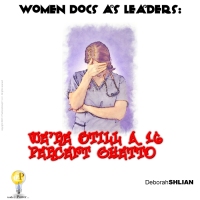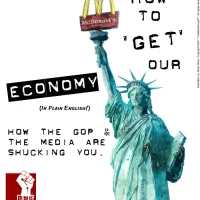If You Think A-Rod is the Doper, the Bigger Addicts are MLB and YOU.
Sadly, Major League Baseball (MLB) is plagued with addiction, but it is not the players who are hooked on performance-enhancing substances (PES); It is the fans who are addicted to the homerun ball, and the MLB owners who are hooked to the power and money that flows from the real addiction driving this ends-justify-the-means version of professional baseball.
A-Rod’s “confession” just adds another nail in the coffin of post-strike baseball from 1994 until today. I say today, because, in spite of the Mitchell Commission Report and ongoing crucifixion of Barry Bonds, the real addicts, you the fans, and the owners, have not been brought to account for all of this.
At my “other job” at MLN Sports, we’ve spent the last decade following the hypocrisy of MLB’s two-tiered testing system, one for the 40 Man Roster, and a separate one for the minor leagues. It is a kind of steroids-shell game, where you can protect better players who are steroid users by moving them around a bit in the system.
In December, after the Mitchell Report was neatly timed to be delivered during most baseball writers’ vacation time, we stayed home and knocked out “The Perfect Test,” an investigative report into the way that the supposedly “tougher” minor league anti-doping system was in fact a sham, and how it was used, in conjunction with the weaker major league policy, to protect top prospects who were doping.
We followed that up in January, 2008, when one of my top writers, Christopher Hadorn, interviewed Olympic anti-doping expert Richard (Dick) Pound in “A Pound of Cure,” where Pound flatly rejects MLB’s weak assertions that it can do nothing about any of this with the heel dragging of the MLB Players’ Association (the PA).
The bottom line: If MLB wanted to keep baseball steroid free, there is a lot that they could do to stop it.
There is no trainer worth their salt that cannot spot the signs of steroid usage. There are trainers who have reported users to their clubs.
The information is either squelched completely, dealt with on the Q.T. internally, or turned over to the Commissioner’s office which, as we can see from the A-Rod case, also means that the big-dollar player remains protected from public censure.
If teams started losing roster spots for the remainder of the season clubs and their trainers would develop much tougher policing systems. There are probably a dozen other reasonable enforcement mechanisms that MLB could use too, if they wanted to do so.
The reason that this does not happen is because, even though no one wants to admit it, steroids are in the best interests of baseball for everyone but the players whose lives they are shortening.
MLB fans have become juiced by the Juiced Era of the game. They want the big home run. They want the hulking monster who crushes baseballs, and because the naturally-occurring version of those are few and far between, to borrow the old soda sales slogan: “Things go better with Juice.”
There are even people now suggesting that the new way of dealing with this is the public mea culpa. Bonds refusing to acknowledge steroid use: Bad. A-Rod in the sweater looking comfortable discussing the issue: ABSOLVED.
So MLB has no problem doing its version of Adolph Menjou in Casablanca, rounding up “the usual suspects,” a few also-rans that either postive test on their own, or possibly, with a bit of assistance.
One has to ask how a kid from the Dominican who makes around $25,000 a year or less to play baseball is getting their hands on $30K worth of designer roids and exotic HGH composites, or why other players in the minors who were never “caught” by the supposedly iron-clad minor league testing system with its vaunted 0.9% positive rate, were juicing the whole time.
In our “Perfect Test” players told us that even the lab technicians administering the test were helping compromise it.
It is not in MLB’s interests to do much more than wag its finger at steroid use, just enough to avoid having Congress re-examine their much-vaunted antitrust status, because they know that other than for the occasional sensational headline or publicity seeking politico, the fans really don’t care.
That was demonstrated quite clearly for them during the Barry Bonds home run chase. Mr. Selig let Bonds continue his quest to break Aaron’s much vaunted record because it generated record attendance in spite of, or perhaps exactly because of, the steroid controversy.
Baseball can’t end the steroids witch-hunt because Congress has taken an interest, and because drug usage has been tied to the periodic question as to whether MLB should maintain its much-enjoyed Federal anti-trust exemption, the only one of its kind for any business in the United States of America.
How does the steroids era end? It really is up to you, the fan. Are you ready to weaned off of them? Are you willing to see one-quarter to one-third fewer power hitters take the field? To see pitchers retire without the extra seven or eight years of their big league careers?
As long as you keep tuning in, and visiting mlb.com, and buying jerseys with “Bonds” and “Clemens” and “Rodriguez,” then not one of you should be throwing stones at A-Rod. He is a symptom. You, and the owners milking every last dollar out of you without regard to their stewardship of the game or the ethics of damaging the health of these amazing athletes, are to blame.












You do’nt understand the meaning of addiction